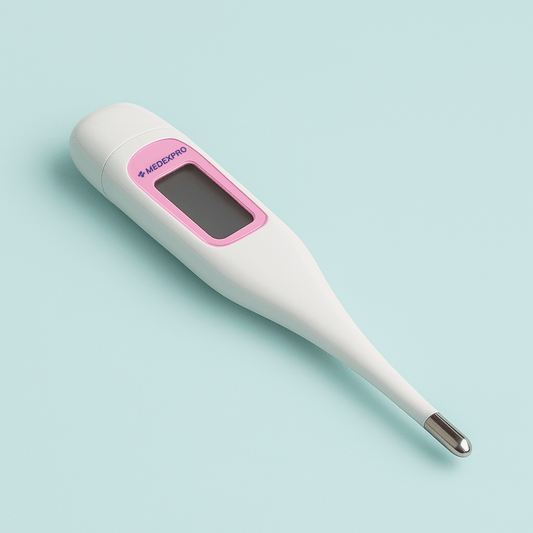Ovulation and perimenopause: What you need to know

Perimenopause: A season of transition
Perimenopause is the natural transition that leads up to menopause, the point when menstrual cycles stop altogether. For many, it begins in the early to mid-40s, though it can start earlier or later. This stage can last anywhere from a couple of years to a decade, and one of the most confusing parts is how ovulation behaves during this time.
While menopause is officially defined as going 12 months without a period, perimenopause is the long, often unpredictable stretch beforehand when your hormones start to shift and cycles become less regular.
What happens to ovulation in perimenopause?
During your reproductive years, ovulation follows a fairly predictable pattern: an egg is released mid-cycle, supported by a rise in estrogen, followed by progesterone production. But in perimenopause, the ovaries begin to lose sensitivity to the brain’s hormonal signals. Follicle-stimulating hormone (FSH) rises as your body works harder to stimulate the ovaries, and ovulation becomes less consistent.
Some cycles are still ovulatory (an egg is released), while others are anovulatory (no egg is released). That’s why periods in perimenopause can seem irregular, sometimes closer together.
Signs that ovulation is changing
The changes in ovulation during perimenopause show up in several ways:
Irregular cycle lengths: Periods may come earlier or later than you’re used to.
Skipped ovulation: You might go months without releasing an egg, even if bleeding still occurs.
Hormonal symptoms: Hot flashes, night sweats, mood shifts, and changes in libido often emerge as estrogen and progesterone fluctuate.
Changes in cervical mucus: Fertile-quality mucus may appear less frequently or more unpredictably.
Because cycles can vary so much, predicting ovulation in perimenopause is more challenging than in your 20s or 30s.
Fertility in perimenopause
It’s a common misconception that perimenopause means pregnancy is no longer possible. The truth is, as long as you are still ovulating, even sporadically, conception can happen. Fertility does decline significantly during this stage, but it isn’t zero until menopause is complete.
This is why many clinicians advise continuing contraception if pregnancy isn’t desired, even well into your 40s. On the other hand, for those still hoping to conceive, knowing that ovulation can occur unexpectedly is important for planning.
Tracking ovulation in perimenopause
Because cycles are irregular, traditional “day 14” rules don’t apply. Tools and observation become more important than ever:
Ovulation kits (like OvaDetect): These can still detect LH surges, though results may be more unpredictable.
BBT tracking (OvaTrack): Temperature shifts can confirm if ovulation happened, though they may not occur every cycle.
Cervical mucus monitoring: Helpful, but may be less consistent as estrogen levels fluctuate.
Tracking doesn’t guarantee predictability, but it does provide insight and reassurance about what your body is doing.
Health beyond fertility
Ovulation in perimenopause isn’t only about fertility. Ovulatory cycles also produce progesterone, which plays a role in bone health, mood regulation, and sleep quality. As ovulation becomes less frequent, progesterone production declines, contributing to many of the symptoms associated with perimenopause.
Understanding when ovulation is happening (and when it’s not) can help you have more informed conversations with your healthcare provider about managing symptoms, hormone testing, or considering supportive treatments.
Ovulation during perimenopause can feel unpredictable, but it’s part of the body’s natural transition. While cycles may shift and fertility may decline, every change tells you something about the journey your body is on.
Whether you’re still trying to conceive, seeking reassurance about contraception, or simply wanting to understand the hormonal ups and downs of this stage, tracking ovulation can provide clarity. Remember, perimenopause is not a sudden switch but a gradual shift, and with the right tools and support, you can navigate it with knowledge and confidence.
Your body is evolving, not failing. Each cycle is part of your unique story, and understanding ovulation in perimenopause is one way to honour that journey.

If you need help going through any block, talking with a TTC consultant can help! Book a FREE 15-minute virtual consult today!
Book a TTC consultation











